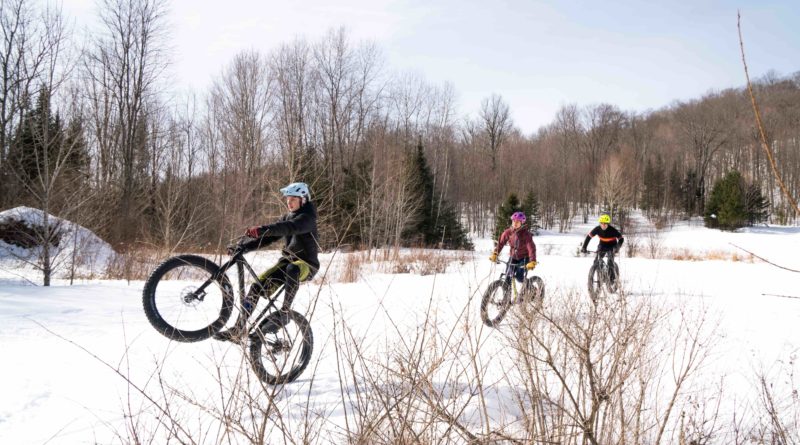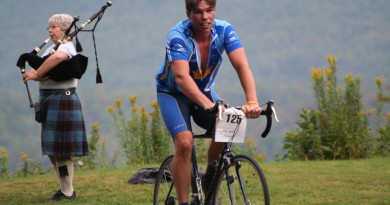Kingdom Trails Faces Growing Pains
In early December, Kingdom Trails Association reported that three Darling Hill landowners had notified the nonprofit saying they no longer wished to provide bike access on their properties.
While the change will affect fatbiking and mountain biking, Nordic skiing, hiking, snowshoeing, jogging and horseback riding will all continue to be allowed on the 12.4 miles of affected trails.
“We fully respect their decision, as it is their private property and they have the sole right to determine the use of their land,” wrote executive director Abigail Long in a statement on the trail organization’s website on Dec. 16, 2019.
Kingdom Trails has facilitated mountain biking on its 100-plus-mile network since 1994 through agreements reached with 97 private landowners.
Though the landowners’ reasons for withdrawing their permission for bike access have not been disclosed, Kingdom Trails’ statement made reference to “concerns for the pressure and stress the continued strong growth in trail use and area visits has put on landowners’ properties as well as the roads and small villages where trail access exists.”
In July 2019, Kingdom Trails Association was awarded a United States Department of Agriculture grant to complete a Network Feasibility and Infrastructure Study, with the goal of engaging landowners and community members to identify possible new welcome center locations, as well as additional parking, pedestrian crossings and other new infrastructure to better manage the trail network’s growing popularity. The study will also explore how trails, along with economic development, enhance quality of life for locals and quantify their role in economic development.
“While success of the trails has brought meaningful economic benefit to the area, challenges and tension points exist around traffic, congestion and pedestrian safety,” wrote the organization in a statement from Dec. 16. According to reporting by Justin Lavely for the North Star Monthly, mountain biking at Kingdom Trails grew by nearly 50 percent between 2016 and 2018, reaching 137,000 rider visits in 2018.
The study is slated to be completed by the end of mountain biking season in fall 2020. In the interim, Kingdom Trails is working with the town of Burke to improve East Darling Hill Road, which is the main access point for the affected properties and other trails within the network, improving drainage, adding a new subbase and asphalt and a five-foot climbing bike lane for uphill cyclists who use the road.
Kingdom Trails has also purchased two parcels of land adjacent to the road in a move that will secure a critical trail connection by creating an off-road riding option that will eliminate the need for downhill bike traffic on East Darling Hill Road.
This summer, the organization made another move to mitigate bike traffic on local roads, when it built the roughly three-mile Flower Brook connector trail, which runs between downtown East Burke and East Haven. The idea is to discourage cyclists from riding on Vermont Route 114.
Kingdom Trails is also exploring ways to extend its trails to the Burke Town School and possibly to West Burke. Similarly, the nonprofit is in communication with the Lyndonville Select Board regarding a trail that would connect the potential new Lyndon Green Space (located at the site of the old town garages) with the main trail network.
“While the Kingdom Trails network will be affected by this change in access and connectivity, miles of diverse trail terrain remains for all skill levels,” wrote Long in mid-December.
Featured Photo Caption: This season, Kingdom Trails celebrates its 25th anniversary. New for this season, the organization is grooming an additional seven miles of new fatbiking trails in the White School area. Photo courtesy Kingdom Trails.


